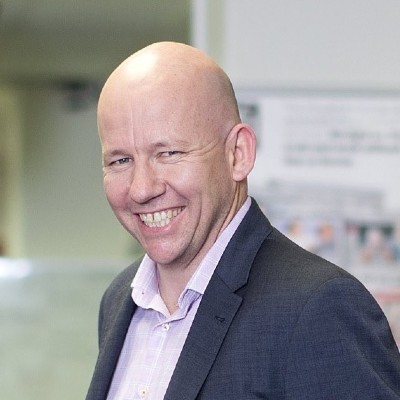Each day on The Great New Zealand Road Trip, Shayne Currie catches up with a noteworthy New Zealander, measuring their mood and hopes for the country. Today, we hear from one of New Zealand’s top constitutional and administrative law experts, specialising in central and local government policy and legislation, Mai
The Great New Zealand Road Trip: Nine Questions With... Mai Chen

Subscribe to listen
I have got great views of Rangitoto – I can see a lot of sky, hear birds and spot blossoms and roses. There are walks and good circuits to run around every direction from my house – and five wooded areas and hills. Wonderful!
What are your passions?
Walking or cycling fast to loud music, swimming, growing and being in my garden, learning to bake again, doing mother-and-son kombucha-making and creating new flavours, movies, reading, and listening to podcasts that make me think/rethink/understand different perspectives and learn.
Which New Zealander (alive or dead) do you most admire – and why?
Sir Ivor Richardson, former president of NZ’s Court of Appeal. He was a great jurist and so kind. He came from a tough background. Both his parents died when he was a young teenager. But he rose from that tragedy to become one of the greatest judges this country has ever had. He was the one who taught me you can only solve a legal problem if you start in the right place. He also taught me to think hard before dying in the ditch on an issue or matter – you can only do it once.

What is your idea of perfect happiness?
After a hard week at work with tight deadlines where I post some wins, save some clients and solve some big problems, I wake up on a Saturday and it’s a day which is (as Natasha Bedingfield sings) “unwritten” – for me to decide what I want to do, when I want to do it, and with whom. I can be spontaneous. No appointments, no must-dos, no homework, no dead rats to swallow, no difficult conversations. Just my favourite class at Les Mills, “The Trip”, buying all the food I like and cooking and eating it, walking our border collie beside the sea, having a swim, and hanging out with my family at home on my favourite couch on the porch looking out at our garden. And taking no work calls!
What is your greatest fear?
Losing those I love the most through death or illness.
What is it that you most dislike?
Wasting time, going through the motions or being directionless or being becalmed. In Life Lessons from Kierkegaard, Robert Ferguson says the one thing Kierkegaard wants us to understand is that most of us are sleepwalking our way through life. I do not like sleepwalking through life.
What is on your bucket list?
To chase the sun for a year around the world and have as many adventures as possible.
What do you hope/think NZ will look like in 10 years?
That’s only three election cycles away. Census 2023 tells us we will be moving towards 50% of the population identifying as Māori, Asian and Pasifika. Asians will be more populous than Māori, which will also create more culturally and linguistically diverse challenges for the legal system in terms of access to justice.
The Anglo-Saxon population will continue to age and Māori and Pasifika people in particular will increasingly comprise the majority of the younger and working population.
That population make-up will challenge our current constitutional arrangements as who comprises the majority and minority in New Zealand changes and as we move towards the 200th anniversary of the Treaty of Waitangi in 2040. And in politics, numbers matter.
Since the abolition of the Upper House in 1950 (Legislative Council Abolition Act 1950), the House of Representatives has pretty much had unbridled lawmaking power.
Current events have made that fact clearer to more New Zealanders and shown why constitutional checks and balances matter.
Given Parliament and the executive branches of government can be conjoined through Cabinet (this coalition Government has a working majority to pass laws in the coalition agreements), there will be more proceedings filed in the courts in the coming years to declare that laws are inconsistent with the NZ Bill of Rights Act or breach rights so fundamental they cannot be enforced.
This will strain the relationships between the executive/Parliamentary and judicial branches, but that strain is necessary and expected under the separation of powers.
I think New Zealanders need to understand more about how our system of government works so people don’t get surprised when those elected to govern start implementing their manifesto and campaign promises. A contest of ideas is healthy, and disagreeing and keeping political decision-makers accountable for their decisions is how our system is supposed to operate.
It doesn’t mean the system is broken when there is disagreement, debate and demonstrations. It means our democratic system is working as it should. Political decision-makers making statements that don’t withstand fact-checking is not new, and keeping them honest is the job of the Opposition.
Identity politics will remain a part of NZ’s landscape, but as migration continues to make NZ one of the most diverse countries in the world, more and more migrants will develop a sense of belonging and a stake in the economic wellbeing of NZ.
I hope in 10 years’ time, New Zealand does not become an irrelevant island nation with nice scenery, and a sanctuary for climate change refugees, but where serious talent has no choice but to leave.
Editor-at-Large Shayne Currie is one of New Zealand’s most experienced senior journalists and media leaders. He has held executive and senior editorial roles at NZME including Managing Editor, NZ Herald Editor and Herald on Sunday Editor.